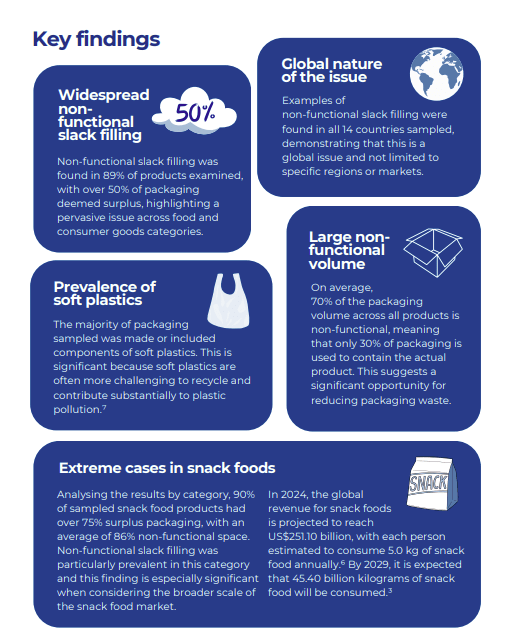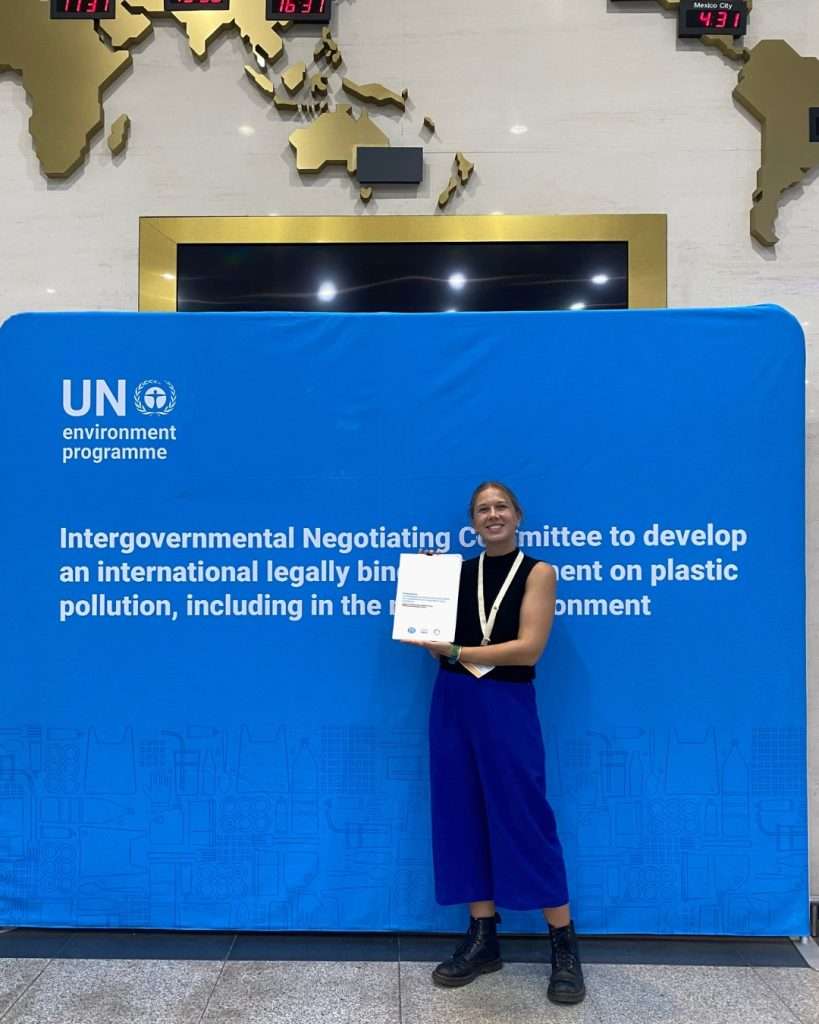Last week, delegates from around the world came together at the INC-5 Global Plastic Treaty negotiations in Busan, Republic of Korea. Tangaroa Blue’s Bella Charlesworth was on the ground in Busan, following the action. Much anticipation surrounded these important (and supposedly final) negotiations, with the goal of agreeing on a Global Plastic Treaty by the end of the event.
Although disappointingly, the negotiations ended without an agreed-upon treaty ( and another round of the talks was set for next year) – there were some glimmers of positive news throughout the week.
While many were disappointed with the lack of a treaty, high ambition countries including Fiji and Panama, amongst others, noted that no treaty is better than weak treaty. Now, ambitious Member States and observers will work hard to finalise their positions in the lead-up to the resumed session in 2025 (i.e. INC-5.2). Countries will use the latest Chair’s text for the resumed session as the basis for the continued negotiations. The Chair reminded delegates that the whole text is still subject to negotiations.
Highlights
- Disappointingly, the Chair’s non-paper falls short on capping production but does address fishing gear, including ghost gear and a call for strong national data.
- In the final plenary, high ambition countries delivered clear, ambitious statements indicating that the ‘coalition of the willing’ will work hard in the lead-up to the next negotiations.
- Powerful examples include the statement delivered by Ghana on behalf of the African Group of Nations and a passionate statement delivered by Mexico on behalf of 94 countries calling for a strong and ambitious delivery of the UNEA mandate.
- Juliet Kabera, the delegate for Rwanda, on behalf of 85 countries called for the room to “stand up for ambition”, and was met with applause and whistles, expressing collective hope for a strong treaty.
- Transparency was a key issue highlighted by observers at this and other negotiating sessions. Observers, including Indigenous Peoples and Rights Holders, scientists and youth were excluded from negotiations for two days, only given a chance to speak at 2:00am at the end of plenary. A just transition remains absent from the Chair’s latest text.
During the event, Tangaroa Blue Foundation and the International Waste Platform launched their white paper – Wasted Space: An Investigation into Non-Functional Slack Filling with Implications for the Global Plastic Treaty and Beyond. This innovative paper brings something fresh to discussions of production and packaging, using rigorous citizen science to expose some of the lower-hanging fruit for tackling the plastic pollution crisis: non-functional slack filling.
Non-functional slack fill is the unnecessary empty space in a package that is filled to less than its capacity – and it’s more common than you think! Alarmingly, findings showed 50% of the packaging sampled was surplus!
Tangaroa Blue and the International Waste Platform are calling for policy-makers and plastic producers to make changes to the way they package goods. By focusing on this easily addressable aspect of packaging design, opportunities are created for significant waste reduction, aligning with the goals of the Global Plastic Treaty and supporting the transition towards a more sustainable, circular economy for plastics.
"While we are disappointed that INC-5 did not conclude with a Global Plastics Treaty, we recognise that achieving a meaningful, impactful, and legally binding agreement within just two years was always going to be a challenging task. Extending negotiations to an INC-5.2 session is the best course of action— at this point in negotiations, no treaty is better than one that falls short of its purpose. We urge delegates to include non-functional slack filling as negotiations continue. Addressing wasted space in packaging would be a win against plastic pollution that is already within easy reach for plastic producers."
Heidi Tait - Tangaroa Blue Foundation CEO Tweet

Recommendations for Plastic Producers
- Conduct regular packaging audits to identify and eliminate instances of non-functional slack filling.
- Invest in innovative packaging design.
- Adopt flexible packaging systems that can adapt to different product volumes.
- Collaborate with retailers and distributors to optimise packaging throughout the supply chain.
- Follow the European Union’s lead and implement the Digital Product Passport (DPP) globally.
Recommendations for Policy Makers
- Legislate national and international mandatory product design requirements to limit non-functional slack filling.
- Develop and implement international standards and definitions for functional and non-functional slack filling.
- Incentivise sustainable packaging design through tax incentives or grants.
- Mandate transparency in packaging by requiring clear indication of functional vs. non-functional space on product labels.
- Integrate slack fill reduction into broader plastic pollution strategies and global plastics treaty negotiations.
Read the recommendations in more detail.
Addressing non-functional slack fill to reduce plastic pollution
Moving forward, addressing non-functional slack fill through improved packaging design and stricter regulations could reduce waste, reduce carbon footprints, and enhance consumer trust. Encouraging brand owners to adopt more sustainable practices by minimising slack fill and exploring alternative packaging materials could play a key role in reducing the environmental impact of these products.
Member States should consider addressing non-functional slack fill as a way to reduce unnecessary national plastic production and waste generation. These considerations can be brought to INC-5.2 and perhaps included in the text’s provisions for packaging design currently under negotiation
"While initial negotiations were dominated by delay tactics from the like-minded fossil fuel-producing States, what ultimately defined INC-5 was the emergence of a powerful coalition demanding meaningful action. The alignment between ambitious States, Indigenous Peoples, and civil society shows that ending plastic pollution is achievable"
Bella Charlesworth - TBF INC-5 Representative Tweet






